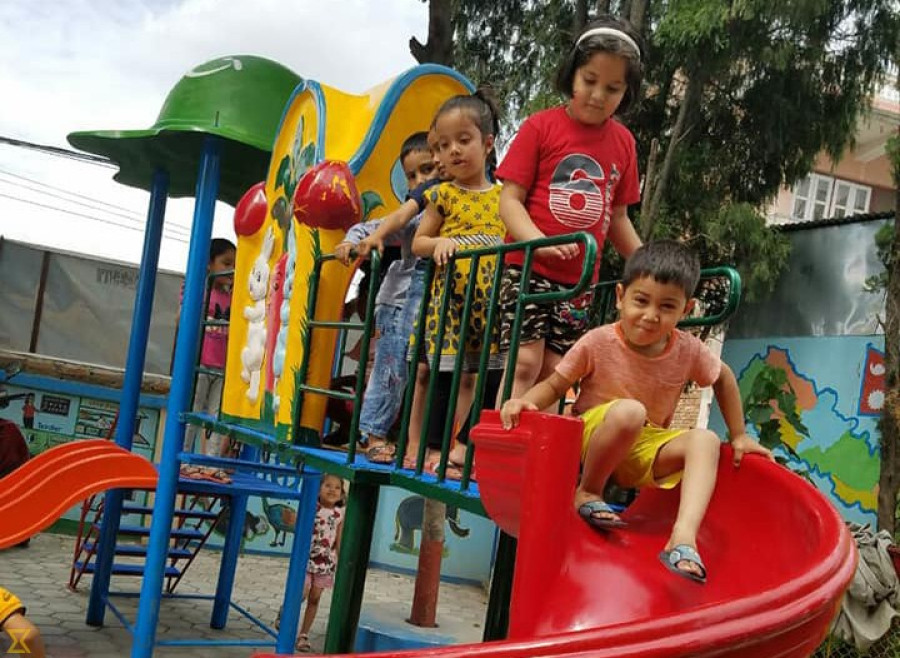National
Early childhood development continues to be ignored
Teaching support staff are paid a third of what a government office assistant draws.
Binod Ghimire
Despite repeated commitments from the government, Early Childhood Development education remains the least prioritised sector with meagre payment to support staff and paltry budget for running the classes for children aged four and five years.
The government’s economic survey published prior to the national budget last month shows 35,993 ECD centres—30,097 run by the government and 5,896 privately—are in operation to cater to around one million children across the country. Such centres are run by the support staff who are paid Rs 6,000 per month—Rs 7,200 after 20 percent increment announced in the budget effective from next month.
The money they get is around three times lower than the monthly salary of an office assistant in government services, who draw around Rs 23,000 monthly after the hike in salary.
The eighth amendment to the Education Act envisions bringing ECD to mainstream schooling and providing remuneration to the staff at par with primary school teachers. The government’s School Sector Development Plan, which is aimed at enhancing the quality of schools, adopted in 2016 also envisions ensuring remuneration at par with government employees and developing a career path for them. However, the budget presented for the upcoming fiscal year hasn’t taken any step towards executing them.
Kishor Shrestha, professor at Tribhuvan University and an expert on ECD education, said the sector has never received adequate government attention.
Along with providing the learning environment, early childhood is about nutrition, health service and care.
“Let alone ensuring other facilities, the staff are not even trained properly,” he told the Post. He said one cannot expect better performance from such staff who neither have proper training nor get standard pay.
Shrestha’s study shows that around half of the 30,000 plus staff are untrained. The 2015 assessment report by the World Bank said the quality of early childhood development education suffered from limited government support and limited training for teachers. The report, however, said students who enter grade one with ECD experience are more likely to complete the grade, and less likely to repeat the same grade.
According to the economic survey, net enrolment in ECD last year was 84.7 percent while the number of students enrolled in grade one with an ECD experience stood at 66.9 percent.
The support staff have been building pressure on the government to bring them into the mainstream education service and pay them as per the government scale. In June last year, an association of such staff submitted a memorandum to Education Ministry Giriraj Mani Pokharel to hike their salary but no steps have been taken to this effect so far.
Even officials at the Education Ministry admit injustice to the staff.
They say their recommendation for the increment in payment gets rejected by the Finance Ministry. “It is a matter of shame that the teaching staff get much less salary than the peons,” Ram Krishna Simkhada, chief of the ECD department under the Centre for Education and Human Resource Development, told the Post. “We are aware that we cannot expect quality service with the meagre payment.”
Simkhada said the centre has received several memoranda from different district associations of such staff and they are planning to forward it to the Finance Ministry.
“The three tiers of government need to share the burden if the federal government cannot afford it alone,” he said. “But the increment shouldn’t be delayed anymore.




 8.67°C Kathmandu
8.67°C Kathmandu















